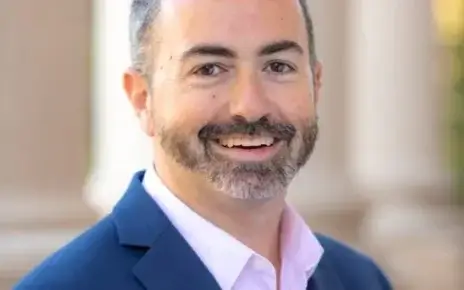On Monday, Feb. 19, the Faculty Association of Monmouth University (FAMCO) began negotiations with the University regarding a new contract, following the typical three-year cycle of contract expirations.
Johanna Foster, Ph.D., Associate Professor of Political Science and Sociology, serves as the chief spokesperson for the faculty union team and additionally served as FAMCO’s President prior to sitting at the bargaining table. “I’m excited to be participating in these critical negotiations this semester as, regardless of which party we represent, FAMCO respects that all of us who call Monmouth University our professional home have a shared goal to protect our thriving academic community for the sake of our students,” Foster said.
She continued, “The faculty union also comes to the negotiating table knowing that professors play the central role in delivering on our academic mission for our students, and because of that, supporting the professional health and economic security of professors is critical to making sure our Monmouth students get the best education their money can buy.”
Melissa Brzycki, Ph.D., Assistant Professor of History and Anthropology, is not on the bargaining team for the new contract but nevertheless assents with the contract’s ability to aid in student learning. In her opinion, students should be informed about FAMCO’s endeavors for this reason. “A lot of our goals for the new contract are important for students, so I definitely think that students should know about FAMCO and our efforts to secure a fair contract,” she said. “Our working conditions are students’ learning conditions. For example, stability for the faculty is stability for students. If Monmouth is able to hire and retain high-quality educators, then students get a high-quality education.”
Joanna Jodry, Ed.D., D.M.H., Associate Professor of Professional Counseling and member of the FAMCO bargaining unit, explained the importance of Monmouth’s campus culture and how it plays a role in student learning in regard to the contract negotiations. “The culture at MU has been one of ‘taking care of each other,’” she started, “and over the years, the faculty continues to promote the values to our students of equality, equity, dignity, fairness, and respect for diversity and each other. It is hard to find a class on campus where these issues are not touched upon in some manner. I think that the students should be aware of the FAMCO contract negotiations to see the congruency of their university from the top down promoting these values…or not. Are these just concepts and lifestyles we teach and expect from our students or are they lived experiences throughout the university from the top down?”
She continued, “One thing that is concerning is that the University has hired an outside negation unit, who does not live within the MU culture of our shared values at the university of ‘protecting each other’ while promoting dignity, respect and equality. I’m not sure if these hired people understand our culture at MU enough to negotiate within those shared ideals. I would have felt better if it was our people in our MU culture that were the main negotiators.”
This is the first time that the University has hired outside forces to handle negotiations with the faculty organization. Brzycki elaborated on this concern, highlighting that this issue not only affects the faculty but the students, as well. “The university already has its own very qualified attorney, staff, and administrators that could handle bargaining. Furthermore, this expensive law firm didn’t even come prepared to negotiate during the first bargaining session. It’s such a waste of students’ hard-earned tuition dollars that could be used in so many other ways. MU students deserve better than to have their money wasted like this.”
Laura Turner, Ph.D., Associate Professor of Mathematics, is not on the bargaining team but serves as a liaison between FAMCO and the Mathematics department. Of the external bargaining team, she said, “Not only does [arriving with no proposals] delay the critical process of bargaining, but it is a waste of money on the part of the University. This money would be far better spent mitigating the high cost of tuition or enhancing the educational experience at Monmouth.” There is additional worry from faculty members that the two lawyers could be from a “union-busting” law firm.
Hiring outside lawyers for this process is not a cost-effective means, according to the Economic Policy Institute, a nonprofit think tank based in Washington, D.C. In a Mar. 29, 2023, article from EPI titled “Employers spend more than $400 million per year on ‘union-avoidance’ consultants to bolster their union-busting efforts,” the organization states, “EPI estimates employers spend $433 million per year on union-avoidance consultants. This work is well-compensated—consultants report being paid $350-plus hourly rates or $2,500-plus daily rates for their work to defeat union organizing efforts.”
In comparison, according to Inside Higher Education, in 2020 the average national pay for adjuncts was $3500 per course, per semester. At Monmouth, adjuncts can teach maximum of two courses per semester.
Foster said, “We come into bargaining our next collective labor agreement knowing that Monmouth University has done a great job of surviving the immediate crisis of the pandemic, but that crisis has not fully abated. We know that serious challenges remain in terms of the long-term impact on our mission to provide both access and excellence for our students in a time when the very curricula that speaks to access and excellence is under attack nationwide, as is the value and purpose of higher education itself… There is no doubt we have arrived at a crucial turning point where all of us in the Monmouth University community have a chance to ask ourselves what kind of university we have become, and what kind of university do we want to be in the future.”
She continued: “For FAMCO, the answer to that question is that we want to be a university that continues to provide students with a high-quality liberal arts education that centers on rigorous, exciting and broad-based fields of study that expand and sharpen minds, develop character, and provide the tools for full participation in a thriving society. And if we want a university like this that continues to be committed to such a vision, we will need our professors to be fully supported in the essential work that they do to serve our students.”
According to Stephen Chapman, Ph.D., Associate Professor of Political Science and Sociology and FAMCO’s acting Mediation Officer, there are many factors that make up the whole of the faculty’s contract with the University. Chapman explained, “The contract informs faculty of the processes for applying for promotion or reappointment. It also lays out teaching load requirements dependent on academic title, a general layout on service and research (although much of this is more department-specific), as well as salary and benefits. It also has agreements between the faculty and administration, such as a commitment to academic freedom. There are also provisions about what happens when someone violates the contract, be that a faculty member or member of the administration.”
All of these contract goals fall under FAMCO’s campaign motto for 2024: S.E.A.L. (Stability, Equity, Accountability, and Livelihoods with dignity).
Turner elaborated on these points, further explaining the concept behind each. “Through this bargaining process, FAMCO aims to ‘S.E.A.L the Deal’ by fighting for Stability for faculty and students; Equity in faculty compensation and workloads; Accountability in the context of our academic mission; and Livelihoods with Dignity to ensure that faculty are able to devote their time and energy to supporting and educating the students at Monmouth University.”
“Of all members of the MU community, faculty have the closest links to students,” said Chapman. “Our working conditions are directly related to the quality of education delivered to students. If faculty are stretched too thin, undercompensated, or feel as if they are not equal partners in shared governance, it hits directly at the morale and culture of the campus community.”
In order to promote student engagement with FAMCO’s campaign, the organization will be hosting information booths on Wednesday, Mar. 20, at the Student Center from 11:30 a.m.-2 p.m. and at the Graduate Center Lobby from 6 p.m.-8 p.m. Sanjana Ragudaran, Ph.D., MSW, Assistant Professor of the School of Social Work, is FAMCO’s field coordinator. She said, “The event is an opportunity for students to learn more about the contract negotiations between faculty and administration. We hope that by gaining this insight, students realize this importance to their academic health and support us by showing their ‘S.E.A.L. of Approval.’ We will have giveaways (stickers, buttons etc.) for students to show their solidarity.”
She elaborated, “I hope students learn about what we are bargaining for in our contract, continue to stay tuned throughout this process, and support us. It is important for us as educators as not only are we bargaining for our working rights, but also aspire to be role models for our students for when they enter the workforce.”
“We are encouraged to know the S.E.A.L. the Deal campaign has energized our faculty who continue to hold a deep allegiance to MU and our students despite the rocky surf we all have endured these last few years,” Foster concluded. “We are proud of our students and colleagues at Monmouth, and are eager to get into the substance of our negotiations to keep our community strong.”



